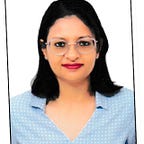3. The Treatment
The hormone receptor test results finally arrived. My cancer was found to be Her2 neu positive. HER2-positive breast cancer is a type of breast cancer that tests positive for a protein called human epidermal growth factor receptor 2 (HER2), which promotes the growth of cancer cells. This means that the cancer cells have a gene mutation that makes an excess of the HER2 protein. Latest research has found that a few drugs like Trastuzumab can be used for treating such cancers. It was determined that I would have to be administered 17 doses of this drug, spread over a year.
A surgery, 8 cycles of chemotherapy, 3 weeks of radiation and 17 doses of hormone therapy was the course of treatment that was decided. During the surgery, it was found that a few of my lymph nodes were also affected and had to be removed. As a result, the range of motions in my left arm was severely affected. I was advised not to use the arm for lifting anything heavy. I was also told to save my arm from any injuries, cuts, bruises and also from injections. Though I did not have lymphedema immediately after the surgery, it would impact me later, during the radiotherapy sessions, when I would have to lift my arms for long periods of time. Compressive arm sleeves and physiotherapy were advised for lymphedema.
After the surgery, I had two tubes attached to my stitches to drain out fluid and dead tissue from my body. As a child, you did not understand why suddenly I had to carry around a bag with the two drains around all the time. The drains stayed for 2–3 weeks and it was nothing short of nightmarish for all of us. The doctor had advised emptying the drains and measuring the fluid collected every day. You would hover around me, angry and upset that I wasn’t able to play with you or feed you and tried to yank out the drains several times. You would go to school and cry and tell your teachers that your Mom was sick. I was forced to go to meet your teachers and explain the situation to them. They were sympathetic and helpful and handled it sensitively. The wound ultimately got infected and I spent a few more days in pain and with high fever, but the suffering had only just begun. It took a long time for me to recover from my surgery as I sustained multiple infections, the next one occurring during the chemotherapy when my blood counts fell.
The Chemotherapy was in another league altogether — the endless waves of nausea, fatigue, dizziness, cramps, pain, and bouts of depression took their toll. I found myself praying for my own death. It was the end I felt, and I had hit rock bottom.
Why me — I would often ask myself. I was a non-smoker, a teetotaler, had never been overweight, who had never taken any oral contraceptives, had a timely pregnancy, exclusively breastfed my child — in short, there was no reason why I should have had breast cancer. I felt it was God’s way of teaching me to appreciate the small things that give us joy in life and my family and the life of privilege I had. Seeing the patients around me in the hospital, I felt lucky to have been diagnosed early and that we could afford the treatment.
On the first day of my chemotherapy, your dad and I met an elderly couple at the hospital. The gentleman walked up to us and introduced himself. He asked me in a gentle voice, “What stage Ma’am?” with a reassuring smile and said after my response, “My wife didn’t tell me about her breast lump for several years. When we finally took her to a doctor, the cancer was found to be a stage 4. She has been on treatment for the last six years, survived it, seen her two children get married and the birth of a grandchild too. If she can survive it, so can you. You are young and lucky to have been diagnosed at an early stage. I wish you the best and hope you make a full recovery. Most importantly, always stand by each other, irrespective of the circumstances, and you will win this battle”.
Those were undeniably wise and inspirational words. I never met the couple again, but the words stayed with me for long.
